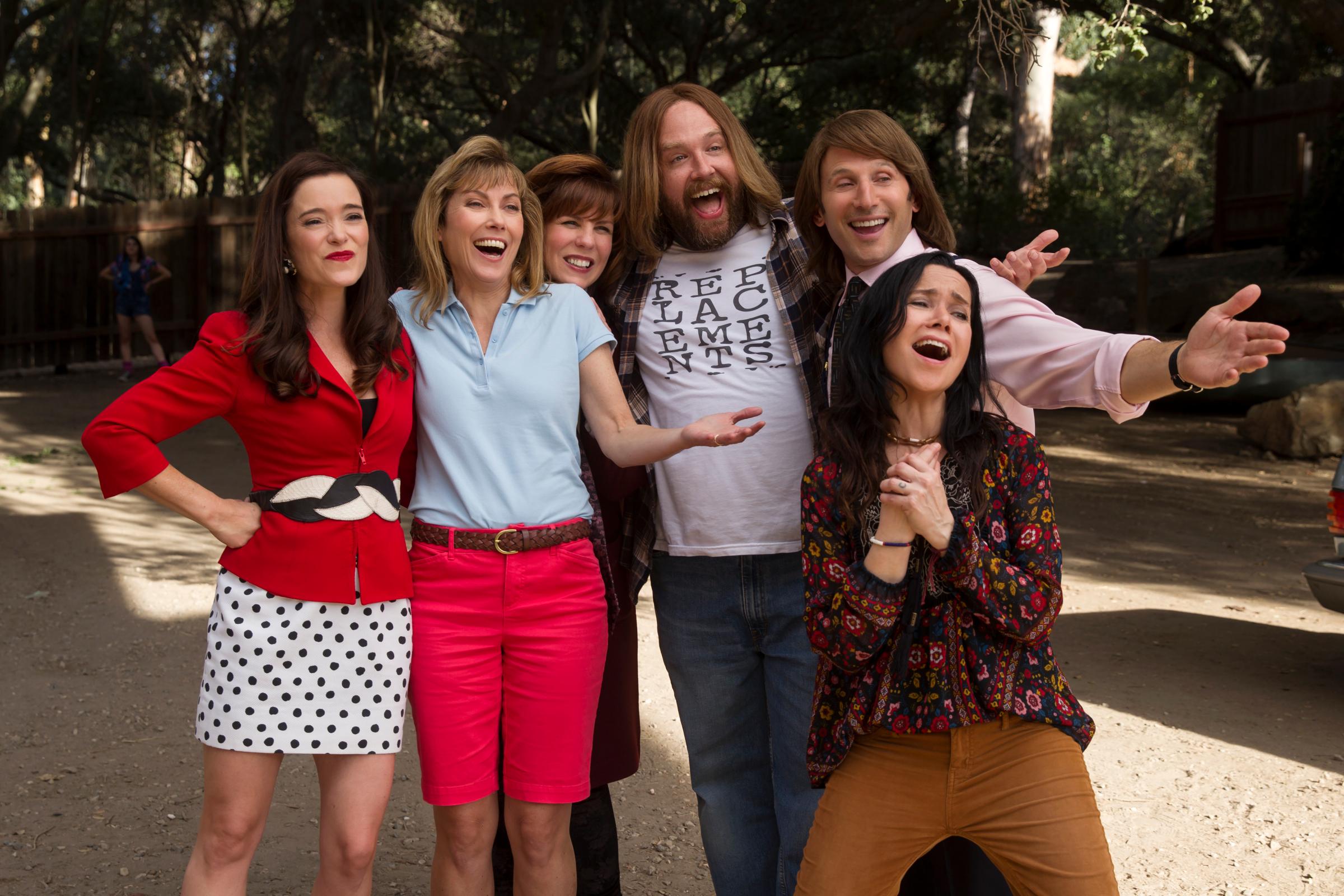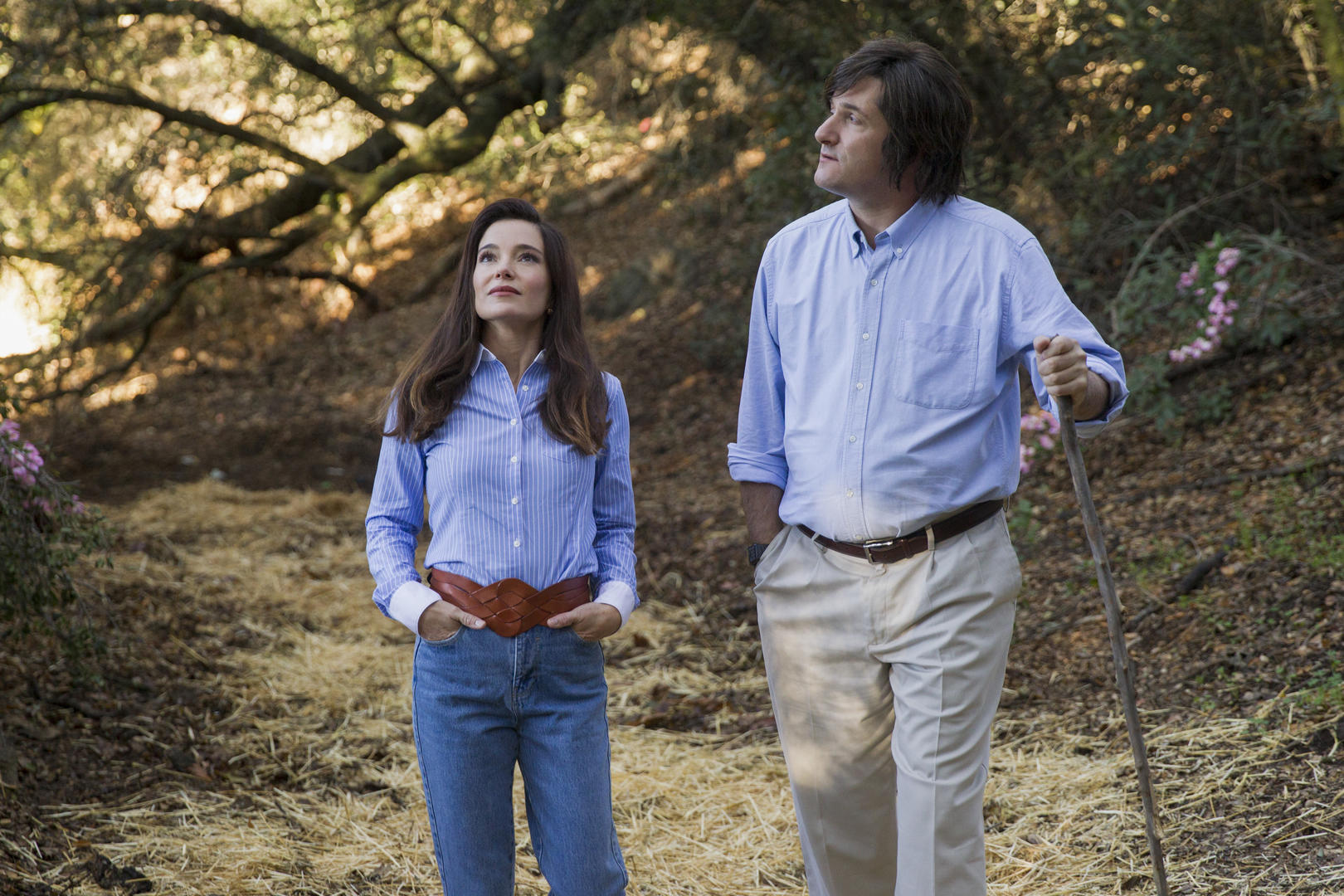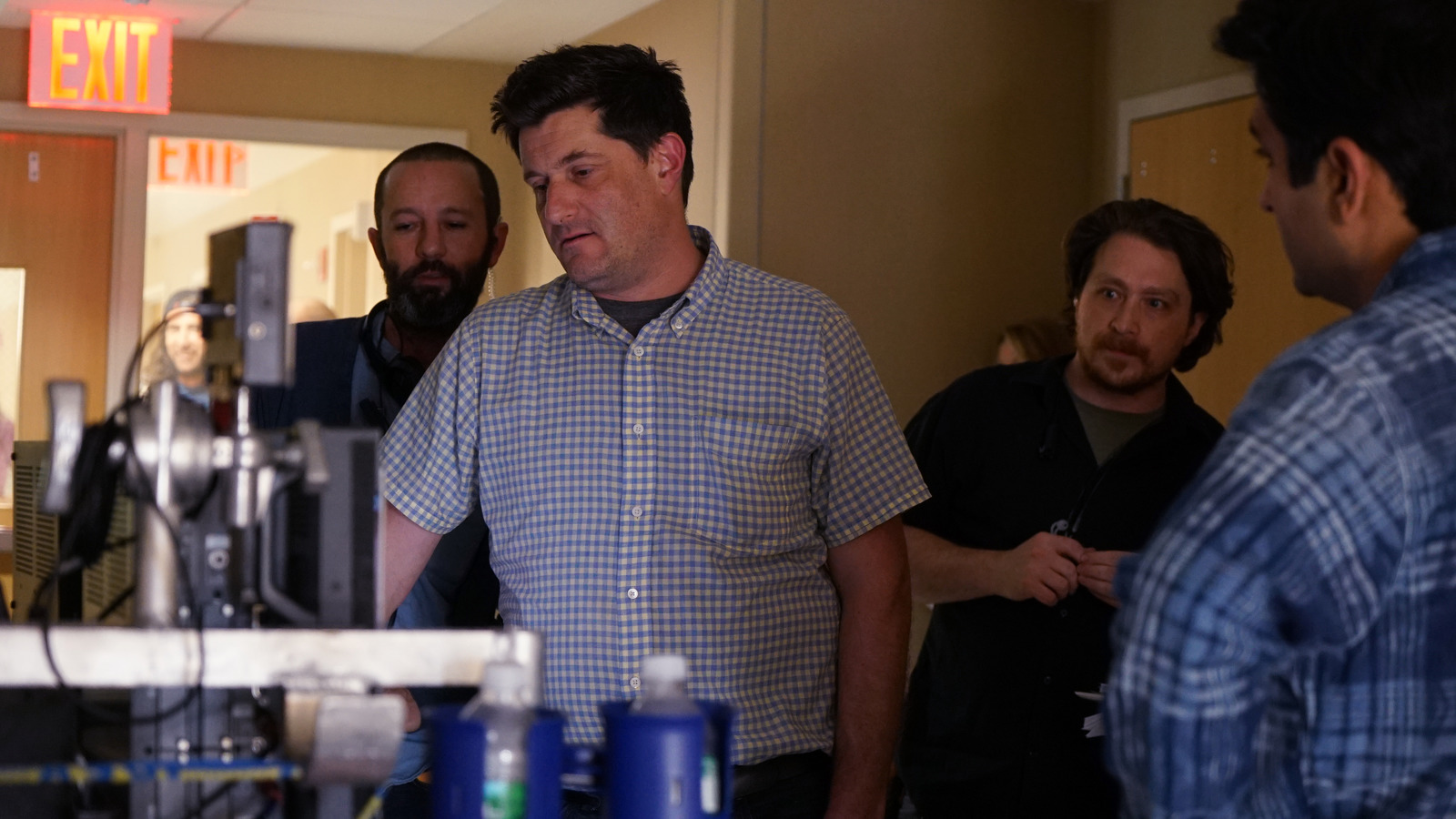In some ways, Michael Showalter never had to leave camp.
The longtime fixture of the comedy world has been a creative force behind some of the past year’s most moving comedic projects. Last fall, he produced TBS’ millennial mystery-comedy Search Party, which returns for a second season in November. This summer, he directed the breakout indie comedy The Big Sick.
On Aug. 4, the streak continues with Wet Hot American Summer: Ten Years Later, the sequel to the most important work of art ever to feature a talking can of vegetables. The eight-episode Netflix series, like the original movie — which was released in 2001 and went on to achieve cult status — was co-written by Showalter and longtime collaborator David Wain, who directs.
It also marks the follow-up to 2015’s prequel series, First Day of Camp, which rewinded the zany action to the hormonal campers’ very first day at Camp Firewood in 1981 (cheekily ignoring the fact that the actors had aged more than 10 years since the movie’s release). This go-around is set a decade later, in 1991, when the counselors reunite in the woods of Maine as grown-ups, technically speaking, though their maturity levels would beg to differ. The drama revolves around their mission to save the camp — based on Showalter’s own Camp Mohawk in the Berkshires — from a totally ominous, totally impossible government conspiracy intent on destroying it.
Those nostalgia buttons? It’ll certainly hit them for diehard fans. But the tightly scripted installment, crafted in the mold of 20-something reunion movies like St. Elmo’s Fire and The Big Chill, pushes the gang’s story into its most emotionally grounded territory yet.

“Wet Hot has to call back to certain things to include everybody, but we want to continue to build the world,” says Showalter. “There was a slight tonal shift this time around. They’re becoming more adult. They need each other in different ways.”
Some characters are so grown up, they’re even married with kids. But Amy Poehler, Paul Rudd, Janeane Garofalo, Michael Ian Black and company serve up enough ketchup-stained brawls, fire endurance tests and nonsensical chants to ensure that fans will feel right at home. Notable newcomers who joined up for the prequel, including Kristen Wiig’s preppy experimental harpist, Lake Bell’s liberated “sexpert” and John Early’s petty drama director, are a testament to the staying power of the Camp Firewood universe.
The series is also a reunion for Showalter, now 47 and a father himself. Back in the 1990s, he broke out, along with Wain and Black, on the MTV sketch show The State and the bizarro three-man troupe Stella. It’s rare to have a homecoming like this, and Showalter is reveling in it. “I just really enjoy going back into this world and writing these characters. We all really like each other and being around each other brings back fond memories of the good old days,” he says.
The core trio’s absurdist 2001 movie helped catalyze successful careers for many of its cast members, and 17 years later, the story’s gravitational pull keeps most of them coming back. “It’s a fun place to return to. We feed off each other and everyone lets their guard down,” says Showalter. The team shot the whole series — sometimes separately for different characters — in two months. Only Bradley Cooper was unable to return, due to scheduling issues. (Adam Scott, who played Poehler’s onscreen husband on NBC’s Parks and Recreation, replaces Cooper’s character Ben, which the show explains handily: it’s just the new Ben after a nose job.)

Showalter returns to play the beloved, awkward Coop, who’s now a novelist engaged to be married. His hopelessly romantic outlook is still mostly intact, affording him some of the show’s most dramatic exits. More fun for Showalter, though, was playing a very over-the-top Ronald Reagan in heavy foundation, sometimes acting opposite himself as Coop.
He says he hasn’t been able to get this silly in awhile. But accessing his playful side is just as easy as it was 16 years ago when he let loose in some of the movie’s most memorable scenes, including a truly unforgettable Rocky-inspired training montage. “It’s always there lurking,” he says.
In addition to Wet Hot, Showalter has brought his directorial talents to the big screen. After directing Sally Field in last year’s well-received Hello, My Name Is Doris, he found both critical and box-office success with his third feature, The Big Sick, based on the real-life love story of star Kumail Nanjiani and his wife Emily V. Gordon, who co-wrote the movie.

In Sick, Showalter molds a true story into a gripping blend of humor and heartbreak, marking a turning point in his career. Writing genre-spoofing dialogue for a vegetable can on Wet Hot might not be the most relatable storytelling. But for The Big Sick, it all comes down to authenticity.
“My agenda was to try and capture the authentic elements and to find out where the audience could get lost in the story or the characters,” he explains, adding that he found comfort in collaboration with the other creative minds behind the film. “When you’re left to your own devices, you second-guess yourself. But when you have a group, you can’t really get inside your own head.”
Showalter has proven that he can apply his comedic voice broadly, from the niche absurdist sensibility of Wet Hot to the universal love story of The Big Sick. As he puts it, he loves directing, writing and acting as long as the material is smart, but he doesn’t know exactly where his career will take him. “There’s no masterplan. I’m just happy to be working on good projects with lovely people.”
Though Wet Hot doesn’t go for mainstream appeal, it fits the good-project-with-lovely-people criteria. As for why the classic has stuck to so many people’s ribs, he thinks he’s figured it out. “There’s something about the humor that feels very true to the way friends laugh at the silly things no one else would think are funny,” he says. “Wet Hot is true to itself. It’s not trying to please everybody.” Neither is Showalter.
More Must-Reads From TIME
- The 100 Most Influential People of 2024
- The Revolution of Yulia Navalnaya
- 6 Compliments That Land Every Time
- What's the Deal With the Bitcoin Halving?
- If You're Dating Right Now , You're Brave: Column
- The AI That Could Heal a Divided Internet
- Fallout Is a Brilliant Model for the Future of Video Game Adaptations
- Want Weekly Recs on What to Watch, Read, and More? Sign Up for Worth Your Time
Contact us at letters@time.com